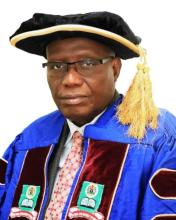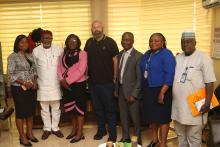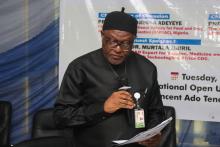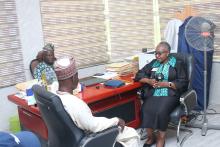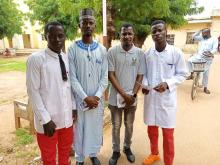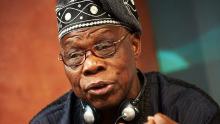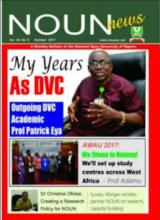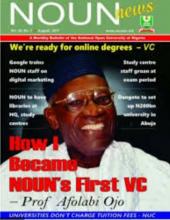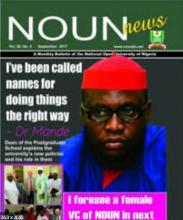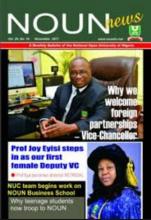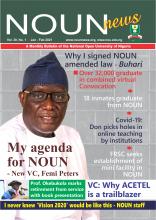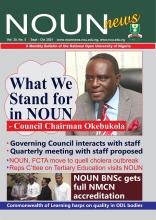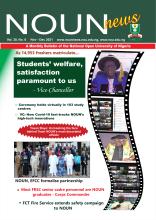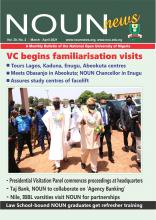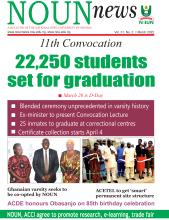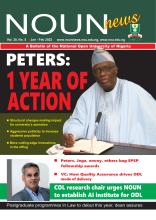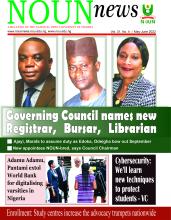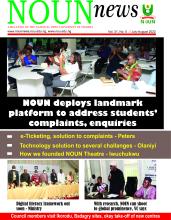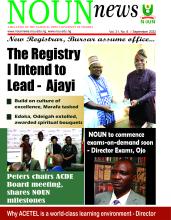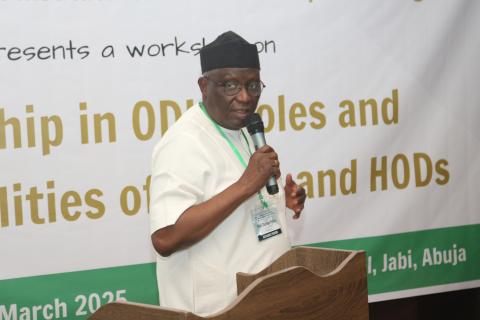
Deans of faculties and Heads of Department (HODs) of the National Open University of Nigeria (NOUN) have been tasked to be in tune with the institutions’ blueprint for smooth implementation and proper guide.
This, the Vice-Chancellor, Prof. Olufemi Peters, said will help them to streamline their day-to-day works with the modus-operandi of NOUN’s Open and Distance Learning (ODL) mode of delivery.
Peters stated this during the opening ceremony of a 3-day workshop, held between March 25 – 27, 2025 with the theme: "Leadership in ODL Roles and Responsibilities of Deans and HODs."
The workshop held at Sandrallia Hotel, Jabi, Abuja, was organised by the Regional Training and Research Institute for Distance and Open Learning (RETRIDOL) for Deans, HODs, Directors of Centres or institutes offering academic programmes as well as all the academic staff.
It was aimed at enhancing the capacity of Deans and HODs in academic leadership, programme development, student engagement, and institutional sustainability within the Open and Distance Learning (ODL) framework.
Prof.Christine Ofulue
Speaking on the topic; Management of Distance Education Institutions: Roles of HODs and Dean’s, the VC reiterated the need for these key staff to be familiar with NOUN blueprint, ‘’Only Deans and HoDs can assist in sustaining this university.
‘’Deans and HODs must familiarise themselves with the statutory university documents such as the Blueprint Implementation Guide and the NOUN Act.”
According to Peters, NOUN is a technology-driven university, and on this premise the target audience for the workshop should guide the course developers to follow the house styles and advise the VC on viability of programmes at centres.
Some of the ODL-induced challenges for learners, he said, cut across learner’s feelings of isolation, ineffective time management, lack of appropriate environment for study and proper guidance, lack of personal rapport as well as opportunity for peer-to-peer interaction due to geographical remoteness, lack of motivation to study independently, techno-phobic financial constraints and physical disability.
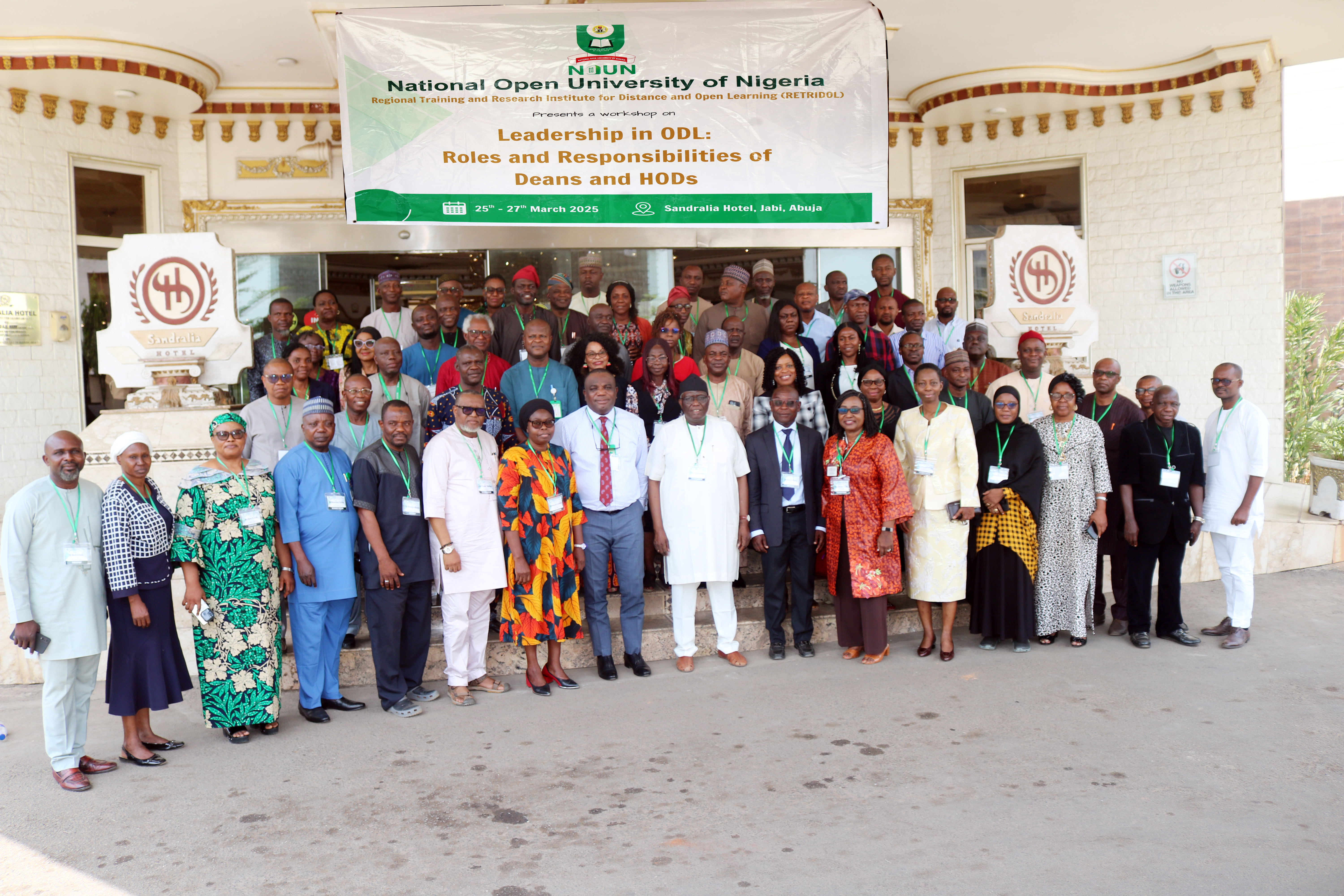
Group Photograph at the end of the opening ceremony
He also listed what he described as the ODL-induced challenges thus: institutional, which includes: inadequate interaction with a counsellor, who can facilitate learning; problems arising out of time constraints due to social, family or work obligations, lack of receipt of study materials, lack of instant communication, not receiving timely feedback, among others.
In her welcome address, Prof. Christine Ofulue, the Director of RETRIDOL, said the workshop aimed to reflect on ODL and its pedagogical framework; clarify roles and responsibilities of Deans, and HODs in ODL institutions; familiarise participants with institutional policies and quality assurance measures that apply to their specific functions; introduce effective communication strategies and issue management techniques; and equip participants to lead and drive research, innovation and collaboration.
The director also emphasised that expected outcome includes enhanced understanding of ODL and its pedagogical foundation, clarified understanding of roles and responsibilities, familiarity with institutional policies and quality assurance and their effective implementation, among others
A Cross-Section of participants
The workshop had presentations on NUC Guidelines on Programme Development and Accreditation, by Prof. Chiedu F. Mafiana; Definite Roles of Deans and HODs, by Prof. Isaac Butswat; Guidelines for Programme Design and Course Development, by Prof. Gregory Okagbare; Faculty and Study Centre Roles in Admission, Screening and Registration, by Prof. Monioluwa O. Olaniyi and Assessment & Examinations @NOUN: Issues and Perspectives, by Prof. Olugbenga Ojo among others.
It also featured a panel session as well as a question-and-answer session where major stakeholders like the Registrar, Mr. Oladipo Ajayi, Prof. Nebath Tanglang, Prof. Obhajajie J. Inegbedion, Dr. Mohammed Hassan, among others, gave insightful responses to major issues in the university.
However, part of the 38-point recommendations, which formed the communique at the end of the workshop, stated that Deans and HODs must familiarise themselves with the statutory university documents such as the Blueprint Implementation Guide and the NOUN Act.
It also said academics must take ODL courses such as Coursera Course to have a first-hand experience of learning via ODL, and that HODs must appoint course coordinators for each course who will be responsible for managing all aspects of the course, from facilitation to assessment.
The communique added that HODs must ensure that every academic is coordinating at least one course, adding that HODs must ensure that every academic is facilitating at least one course, among other recommendations.
Meanwhile, e-certificates of participation were sent to the participants at the end of the workshop.
- Log in to post comments
- 320 views


